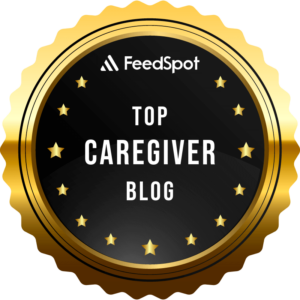
Published on:
Nowadays “self-care” is a term that gets tossed around everywhere. It has become a buzzword. A marketing slogan. A knee-jerk suggestion for anyone who appears overwhelmed. In the world of caregiving, recommendations for “self-care” are now so frequent—and at times misguided—that the term has become almost trite.
What does self-care for caregivers look like? While the answer to that question will vary from one caregiver to another, some of the self-care “solutions” peddled to caregivers will not deliver any enduring impact on actual wellbeing. For this reason, I’ve created a list of what self-care is not—and what it is. My hope is that this post will help caregivers discern real self-care from some of the veiled counterfeits we see today.
Self-care is not self-indulgence.
Arbitrarily doing whatever you want, for as long as you want, whenever you want, for the sake of your own personal enjoyment is not self-care. That’s called self-indulgence.
Self-care is not pampering.
Pampering is related to self-indulgence, but it deserves to be mentioned separately because marketing folks often shroud pampering under the guise of self-care.
Self-care is not selfishness.
Selfishness prioritizes one’s own desires and objectives over those of other people. Selfishness has the potential to drive family and friends away.
Self-care is not haughty.
Haughtiness is anchored in self-superiority, leading one to presume to be “better” or “more deserving” than another person. Such a proud sense of entitlement is not a justification for self-care.
Self-care is compassionate.
The recognition that you must be well in order to give your best self to others is foundational to self-care. By the same token, kindness shown toward others should also be granted to yourself, making self-compassion an equally important part of self-care.
Self-care is balanced.
Self-care is balanced by acknowledging an individual’s needs in context, which includes the needs of other humans as well as their attendant relationships.
Self-care is humble.
Humility enables a person to acknowledge shortcomings and weaknesses. Humility makes it possible for a person to request and accept help, both of which are critical to proper self-care.
Self-care is thoughtful.
Self-care for caregivers is comprised of measured activities that promote wellbeing without harming others. It is thoughtful, not compulsive.
Now, I am not suggesting that you should never get a manicure, for example. If you want a manicure, you can always get a manicure. However, if you want to call that manicure a form of “self-care,” then the veracity of such a statement really depends upon what you’re seeking to accomplish. A manicure can be about good-looking nails, or it can be about much more than that. If the manicure is an activity that allows you to reduce stress, restore energy, and regain motivation, then it represents real self-care.
Thus, the same activity could constitute self-care for one person but not for another. Context and motive are distinguishing factors.
If you’re a caregiver, I hope that you will remember the principles listed above as you consider how to practice self-care in your life. Counterfeit self-care solutions may provide momentary enjoyment, but their effects are fleeting. Authentic self-care will strengthen you and enable you to be fully present for loved ones, especially those who depend on you.
Posted in Caregiving, Family Caregiving






